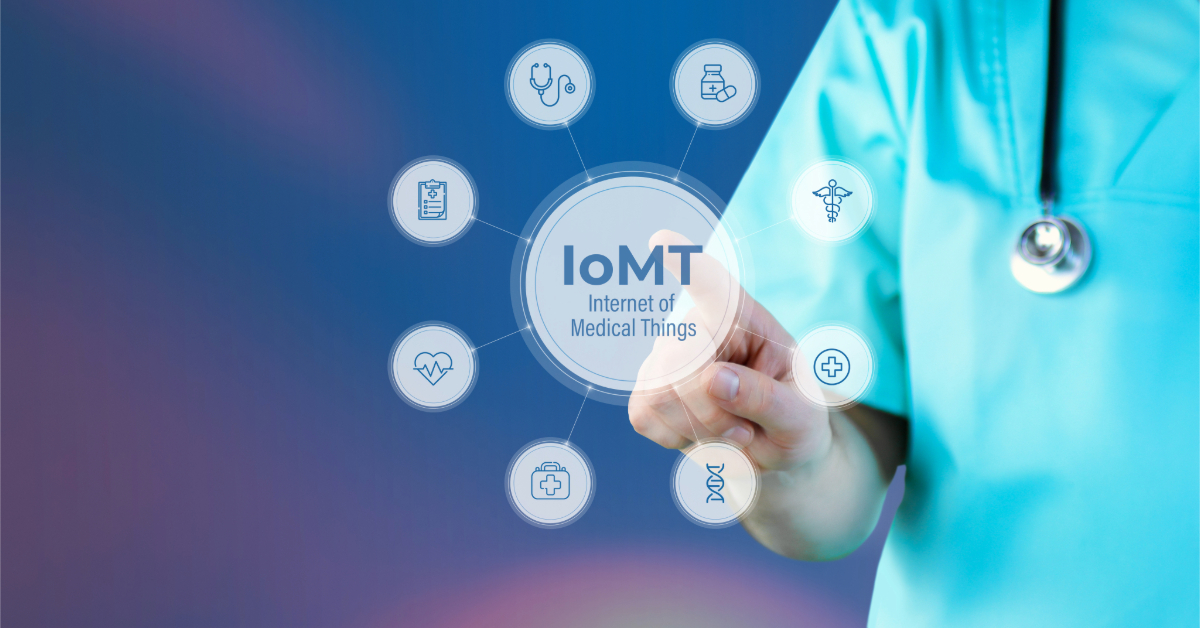The Internet of Medical Things (IoMT) includes connected medical devices like fitness trackers, implanted monitors, hospital equipment, and diagnostic tools that collect and share health data.
As healthcare goes digital, IoMT device makers can learn valuable lessons from the success of smart home Internet of Things (IoT) products like smart thermostats, security cameras, and voice assistants. These smart home devices became popular by being user-friendly, secure, and providing clear value to consumers. IoMT devices can follow similar principles by being easy for patients and doctors to use, protecting sensitive health data, and offering better monitoring and care. Additionally, IoMT manufacturers can study how the smart home industry overcame challenges like connectivity issues and consumer trust through improved internet access, data privacy measures, and consumer education.
Key Takeaways
- The Internet of Medical Things (IoMT) can learn valuable lessons from the smart home industry to improve healthcare experiences and outcomes.
- Seamless integration, user-friendly interfaces, robust security, and clear value propositions are key areas where IoMT can benefit from smart home IoT best practices.
- Designing IoMT devices and platforms with interoperability, simplicity, strong cybersecurity, and tangible benefits in mind will drive adoption and success.
- Collaborations between IoMT companies and experienced smart home solution providers can accelerate innovation and avoid common pitfalls.
- By applying smart home IoT lessons, the IoMT industry can create more connected, secure, and impactful solutions that revolutionize patient care.
Key Areas Where IoMT Can Benefit From the Smart Home IoT Experience
The Internet of Medical Things (IoMT) is a network of connected medical devices that collect and share health data. The Internet of Medical Things has revolutionized the healthcare industry by enabling real-time monitoring and data analysis. As the healthcare industry embraces digital transformation, IoMT device manufacturers can learn valuable lessons from the success of smart home Internet of Things (IoT) devices. Here are key areas where IoMT can benefit from the smart home IoT experience:
User-Friendly Design
Smart home IoT devices, such as smart thermostats, security cameras, and voice assistants, have gained widespread adoption due to their user-friendly design. These devices are intuitive to set up and operate, even for users with limited technical knowledge. Similarly, IoMT devices should prioritize user-friendly design to ensure seamless adoption by patients, caregivers, and healthcare professionals. Simple interfaces, clear instructions, and minimal technical requirements can help overcome potential barriers to adoption.
Connectivity and Reliability
Reliable connectivity is essential for smart home IoT devices to function effectively. IoMT devices, often used in critical healthcare scenarios, demand even higher levels of connectivity and reliability. IoMT manufacturers can leverage the experiences of smart home IoT companies in optimizing wireless connectivity, ensuring uninterrupted data transmission, and implementing failsafe mechanisms for connectivity disruptions.
Interoperability and Integration
Smart home IoT devices often seamlessly integrate with various platforms and ecosystems, allowing for seamless control and automation. IoMT devices should also prioritize interoperability, enabling data exchange and communication between different medical devices, electronic health records (EHRs), and healthcare systems. Standardized protocols and open APIs can facilitate this integration, enabling better coordination of care and efficient data sharing.
Data Privacy and Security
Smart home IoT devices have faced scrutiny over data privacy and security concerns, prompting manufacturers to implement robust security measures. IoMT devices handle sensitive medical data, making data privacy and security even more critical. IoMT manufacturers can learn from the smart home industry’s best practices, such as end-to-end encryption, secure authentication mechanisms, and regular software updates to address vulnerabilities. Additionally, compliance with regulations like HIPAA and GDPR should be a top priority.
Consumer Education and Trust
Initially, smart home IoT devices faced consumer skepticism and concerns about privacy and utility. Smart home IoT companies addressed these challenges through consumer education campaigns, transparent data policies, and demonstrating tangible benefits. Similarly, IoMT manufacturers must proactively address potential concerns from patients, caregivers, and healthcare professionals. Clear communication about data privacy measures, the benefits of IoMT devices, and user education can help build trust and encourage adoption.
Scalability and Cost-Effectiveness
Smart home IoT devices have demonstrated the ability to scale up production and distribution while maintaining cost-effectiveness. As IoMT devices become more widespread, manufacturers must learn from the smart home industry’s best practices in supply chain management, mass production techniques, and cost optimization strategies. This scalability and cost-effectiveness will be crucial in making IoMT devices accessible to a broader range of healthcare facilities and patients.
Conclusion
The Internet of Medical Things (IoMT) has the potential to revolutionize healthcare by improving patient outcomes, enhancing care coordination, and enabling data-driven decision-making. However, the successful adoption of IoMT devices hinges on addressing various challenges, from user experience to data security and scalability. By learning from the smart home IoT industry’s successes and challenges, IoMT device manufacturers can navigate these hurdles more effectively. Prioritizing user-friendly design, interoperability, data privacy and security, reliable connectivity, consumer education, and scalability can help accelerate the adoption of IoMT devices and unlock their full potential in transforming healthcare delivery. As the healthcare industry continues its digital transformation, leveraging the lessons from smart home IoT can pave the way for a future where connected medical devices seamlessly integrate into our healthcare ecosystem, improving lives and revolutionizing patient care.
Essential Industry Insights for Further Reading
- The Internet of Medical Things: The potential and the challenges: McKinsey & Company explores the potential benefits and challenges of IoMT adoption in healthcare, offering insights into key areas such as data security, interoperability, and user experience.
- How smart home tech is influencing healthcare IoT development: Healthcare IT News examines how lessons learned from the smart home industry are shaping the development of IoMT devices, focusing on aspects like user-friendly design, seamless integration, and robust security measures.
- The Future of The Internet Of Medical Things (IoMT): 5 Important Facts: Forbes highlights five crucial facts about the future of IoMT, discussing the potential for improved patient outcomes, the importance of data privacy and security, and the need for collaboration between healthcare providers and technology companies.




